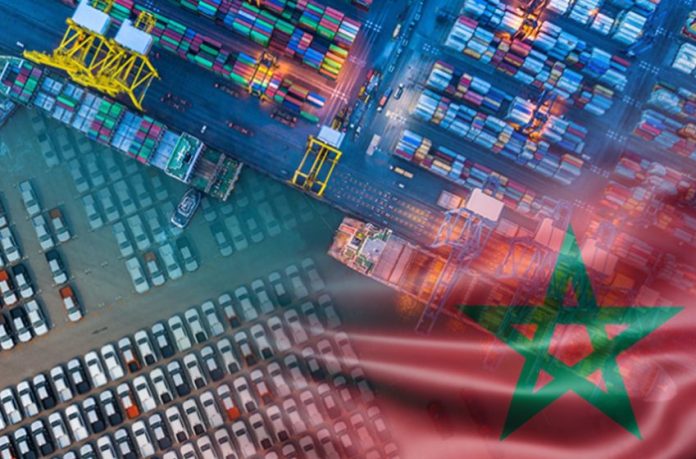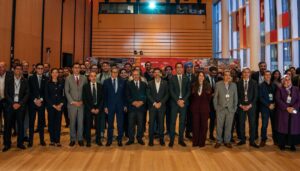
Faycal El. Iraqi
CEO & Founder @ The ImpactForge Consulting | Driving Social Impact & Innovation
Morocco’s Trade Deficit and the Power of Its Diaspora.
Morocco’s latest trade figures highlight both promise and peril. In June 2025, the Office des Changes announced that the trade deficit had widened to 161.86 billion dirhams—an 18.4% increase from 2024. Imports grew nearly 9% to 323 billion dirhams, while exports rose just 3.1%. Even with substantial gains in phosphates (+18.9%) and aerospace (+8.8%), overall export coverage slipped to 59.3%. Key industries such as automotive, textiles, and electronics stagnated or declined. The reality is stark: Morocco consumes and imports more than it produces, leaving the economy vulnerable to global shocks.
And yet, another flow of capital tells a different story. Remittances from Moroccans abroad continue to pour in at record levels. In the first half of 2025 alone, they reached 55.8 billion dirhams, nearly one-third of total exports and 8% of GDP. Remittances are almost double foreign direct investment and outpace tourism revenues. They are, in many ways, Morocco’s hidden wealth.
The problem lies in how this wealth is used. Roughly 70% of remittances go directly into household consumption. A large share ends up in real estate, while the rest covers family needs. Very little goes into productive investment that could generate jobs or expand export capacity. In effect, these billions fuel demand for imported goods rather than reducing Morocco’s dependence on them.
This paradox raises an important question: how can Morocco turn diaspora remittances into a driver of development rather than just consumption? One answer could lie in an innovative financial tool—sovereign bonds designed specifically for Moroccans abroad.
Sovereign bonds are typically government debt instruments. But in this case, they could become more than finance—they could serve as social capital. Imagine a bond program that allows Moroccans abroad to invest directly in schools, hospitals, or renewable energy projects. Buying a bond would no longer be just a financial transaction; it would be a statement of belonging and commitment to the homeland. Investors would enjoy financial returns, while Morocco would secure long-term funding for strategic projects.
The potential is enormous. If only 10% of annual remittances—about 10 to 12 billion dirhams—were redirected into diaspora bonds, Morocco could finance renewable energy to cut reliance on imported fuel, strengthen food security through modern agriculture, support manufacturing to add value to exports, and expand schools and hospitals to build human capital. In other words, the “migrant dirham” could shift from short-term consumption to long-term development.
Other countries have shown that this model can succeed. India’s Non-Resident Indian Bonds mobilized billions during financial crises. Israel’s long-standing Diaspora Bonds have funded major infrastructure. The Philippines has successfully issued foreign-currency bonds for its overseas workers. These examples share standard features: transparency, competitive returns, and emotional appeal. Morocco could adapt the lessons to its own context.
For Morocco, the benefits would go beyond money. A well-designed diaspora bond program could strengthen trust between the state and its global citizens, redefining their role from remittance senders to development partners. It could also open channels for skills transfer, as professionals abroad connect their financial support with technical expertise. Most importantly, it could help rebalance the trade deficit by financing industries that reduce imports and expand exports.
Of course, challenges remain. Success depends on transparency—transparent reporting on how funds are used and what projects they support. Returns must be competitive to attract investors. Bonds should be flexible and transferable to build confidence. Outreach will be critical: embassies, banks, and digital platforms must make participation simple. And governance must be solid, ideally with oversight that includes representatives from the diaspora. Without these safeguards, the program sees these risks as just another debt instrument rather than a transformative tool.
The wider point is that economies are not sustained by numbers alone but by the trust and ties that bind citizens together. Morocco’s trade deficit is a warning sign of imbalance. But with creativity and bold policy, it could become the catalyst for a new model of growth—one where the diaspora’s contributions go beyond family support to nation-building investment.
The choice is clear. Morocco can continue to let remittances fuel consumption and imports, or it can channel even a fraction of them into projects that strengthen its future. The trade deficit may be today’s challenge, but the diaspora could be tomorrow’s solution.




